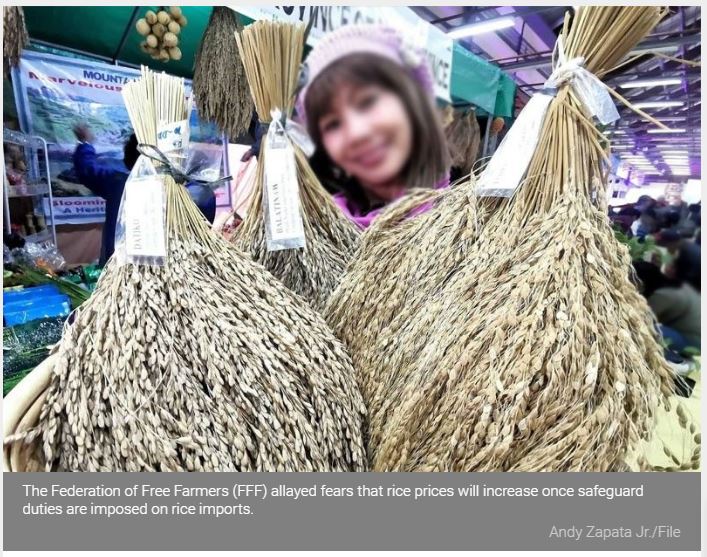Philippines: ‘Safeguard duties on rice unlikely to push prices up’
MANILA, Philippines — Local consumers will not feel the burden of higher prices of rice even if the government imposes safeguard duties on imports.
The Federation of Free Farmers (FFF) allayed fears that rice prices will increase once safeguard duties are imposed on rice imports.
This as Trade chief Ramon Lopez and consumer groups said they would oppose the imposition of the safeguard duties since this would lead to higher rice prices for consumers.
FFF national manager Raul Montemayor said rice imports that are already in the country are very cheap, costing only P25 per kilogram ex-pier, with tariffs already paid.
“Even if the safeguard duty is set to a very high level such that it will totally stop further imports, rice prices should not go up. We already have enough rice until June next year, and the cost of both the imported and local rice will not be affected by the safeguard duty,” Montemayor said.
“The palay that farmers will harvest in the next few months will also be bought by traders at a relative low price because they will have to compete with the cheap imports that have already arrived in the country. These will be milled into rice and will be sold at a price comparable to the imported rice,” he said.
Under the rules of the World Trade Organization and the Safeguard Measures Act, the government can impose general safeguard duties on imports of rice on top of regular tariffs if imports are found to have caused, or threaten to cause, injuries to rice farmers.
Agriculture Secretary William Dar has initiated an investigation to determine if the imposition of the additional duties is warranted, and has the option to impose a provisional duty that can be in effect for a maximum of 200 days.
The Tariff Commission will then conduct its own investigation within 60 to 120 days to determine whether the provisional duty should be retained, amended or removed.
Total rice imports as of September have reached 20 percent of the total rice requirement of the country for 2019, but the Philippines only need 10 percent of imports, at most.
“There is already a surplus in the country which is good for 36 days consumption. Then the main harvest will come in this month to November and will add another 200 days supply of rice. So, we will have enough rice for at least eight months or up to June next year,” Montemayor said.
Further, FFF noted that the imposition of safeguard duties may be used by traders and retailers as a pretext to raise rice prices.
“DTI should do its job and not ask farmers to pay the price for their negligence and failure to stop profiteering by traders and retailers. Consumer groups should also understand that farmers are suffering a lot because of the imports and that there are ways to keep rice prices in check without further hurting them,” he said.
Montemayor said that the imposition of safeguard measures is the most effective and cost-efficient way to address the drop in palay prices.
Source: https://www.philstar.com/business/2019/09/24/1954318/safeguard-duties-rice-unlikely-push-prices-up#OOiMGwfeHWCvjWqJ.99


 English
English




